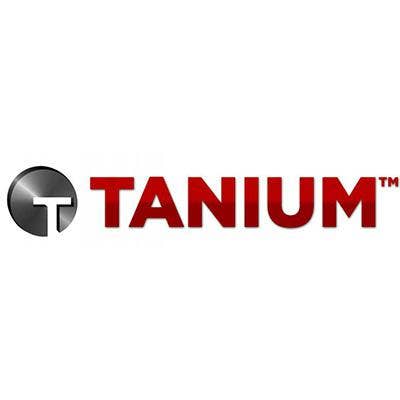The 10 Coolest Tech Startups Of 2014

What's Cooler Than Cool?
Complacency in the tech industry can be a killer. Almost every day it seems like a new niche startup comes out of stealth specializing in the next big thing. But in a sea of never-ending startups, what makes a company stand out as cool?
In the networking space, it's the startups that are rattling the traditional market with emerging technologies like software-defined networking and the Internet of Things. In security, it's the new vendors trying to not only provide innovative threat detection, but also respond to attacks. And in a new era where simply being "a cloud company" no longer qualifies you as cool, startups finding innovative ways to leverage the technology for providing mobility, analytics and security solutions are separating themselves from the pack.
Here, CRN highlights 10 startups that we've deemed to be the coolest in 2014.

Docker
CEO: Ben Golub
Linux containers have been around for years, but Docker was the first to really show the world just how useful they are for deploying and moving apps around between different clouds. And that's one big reason why Docker is probably the most important technology vendor to emerge in 2014.
Docker containers are popular because lots of application development is done on Linux, and containers also eliminate some of the performance overhead that comes with running apps in virtual machines. VMware and Amazon Web Services have both released products that support Docker, as have other vendors.
Docker raised $40 million in a Series C round in September and $15 million in a Series B round in January. Two funding rounds in one calendar year? Yeah, that's a pretty obvious sign of a startup that's going places.

Snowflake Computing
CEO: Bob Muglia
Snowflake Computing came out of stealth mode in October, debuting the cloud-based data warehousing services it's positioning as a more flexible, easier-to-manage alternative to complex and often very expensive on-premise data warehouse systems. Snowflake's Elastic Data Warehouse, currently in beta, also will be competing with the likes of Amazon Web Services' Redshift and Google's Big Query.
CEO Bob Muglia says the Snowflake Elastic Data Warehouse service can operate at 90 percent lower cost than on-premise data warehouses, but is easier to use than the AWS and Google competitors. The San Mateo, Calif.-based startup went so far as to develop its own database system that can handle both structured and semi-structured data.

Databricks
CEO: Ion Stoica
One of the hottest big data technologies in 2014 was Apache Spark, the in-memory data processing engine that turbocharges big data systems like Hadoop. The open-source software grew out of a development project at the University of California, Berkeley.
Databricks offers a Spark-based platform (launched in June) for big data tasks including data transformation, exploration and analytics. But the company, founded in 2013, is much more than just another startup piggy-backing on a popular open-source technology. Databrick's founders, CEO Ion Stoica (a U.C. Berkeley computer science professor) and CTO Matei Zaharia, actually created Spark and are leveraging their expertise with what they call a one-stop shop for big data software.

Formation Data Systems
CEO: Mark Lewis
Formation Data Systems, a Fremont, Calif.-based developer of unified storage to support all formats and media, in September came out of stealth mode with funding of $24 million including support from big-name investors such as Dell, Box CEO Aaron Levie, Seagate CEO Steve Luczo, Riverbed CEO Jerry Kennelly and InMage CEO Kumar Malavalli.
The company is developing Formation XV, or Formation eXtensible Virtualization, a storage virtualization technology based on standard off-the-shelf hardware featuring flash and spinning disk storage and API-based cloud storage. It includes a data connector that projects a virtualized data layer for any operation, letting applications see data as block, file or object storage as needed.

Cumulus Networks
CEO: JR Rivers
Cumulus Networks continues to shake up the networking market with its Linux-based networking operating system, making big strides this year both in the channel and with technology partnership wins.
Founded in 2010 by former Cisco and VMware networking engineers, Cumulus Networks makes a Linux-based networking operating system that can run on commodity hardware. The result, according to the Sunnyvale, Calif.-based startup, is a less expensive and more flexible alternative to traditional networking solutions from companies such as Cisco systems, which tightly integrate networking hardware and software.
In June, Cumulus Networks expanded its channel program to Japan and Australia, after previously launching a program in North America. The company in January also inked a deal with Dell to resell Force10 switches running Cumulus software.

Tely Labs
CEO: Sreekanth Ravi
Since tapping Rob Claus, former channel chief at Huawei Enterprise Business Group, to lead its U.S. sales efforts, videoconferencing startup Tely Labs has made big progress with the channel.
Claus, who joined Redwood City, Calif.-based Tely Labs in January, told CRN last month that Tely Labs' U.S. partner base has grown to include roughly 150 solution providers, up from about 100 in June. What's more, the company has significantly expanded its distribution footprint, having added Synnex, ScanSource, Ingram Micro and Tech Data as partners since the start of the year.
Tely Labs doesn't share revenue numbers, but said channel sales of its flagship videoconferencing system, telyHD Pro, have shot up 400 percent since January.

DataGravity
CEO: Paula Long
DataGravity in August came out of stealth mode with the launch of a new storage platform, the DataGravity Discovery Series, which helps customers manage their data and analyze it for business purposes.
Nashua, N.H.-based DataGravity, founded by the same team that founded EqualLogic before that company's 2008 acquisition by Dell, has raised about $92 million, including a $50 million round of funding unveiled in December.
The DataGravity Discovery Series appliances come in 48-TB and 96-TB versions with flash storage acceleration optimization. They provide information discovery by conducting searches natively at the point at which data is stored, and include built-in block, file and virtual machine data protection with snapshots.

Tanium
CEO: David Hindawi
Berkeley, Calif.-based security and systems management startup Tanium is being led by the former management of BigFix, the IT management platform acquired by IBM in 2010 for an estimated $400 million. The company’s platform is gaining attention for its ability to scale. It can collect information on hundreds of thousands of endpoint devices in seconds, even if they are not connected to the corporate network. For example, when the Heartbleed OpenSSL vulnerability was discovered, users of the Tanium platform could ask a simple query in English and the platform’s natural language parser determined in seconds all of the endpoint devices impacted by the vulnerability. Administrators can also take action, making network changes in seconds. It can deploy patches, stop system processes, and add and delete files and applications in real time or connect to other IT tools to address issues. David Hindawi, CEO and chairman of Tanium, works closely with his son Orion Hindawi, CTO of the company.

Cyphort
CEO: Manoj Leelanivas
San Jose, Calif.-based Cyphort can detect malware that has been designed to evade file analysis in a virtual sandbox. The company's Advanced Threat Defense Platform is deployed off a network tap, a SPAN port or connected to a physical or virtual switch. The company is gaining momentum, recently striking partnership deals with Riverbed, A10 Networks and Bit9-Carbon Black. It received $15.5 million in Series B funding in late 2013. It supports Windows and OS X environments. It can automate response by generating policies for firewalls, security gateways and intrusion prevention system signatures.

Mirantis
CEO: Adrian Ionel
If there's an uprising against the status quo fomenting in the cloud world, it is being driven by OpenStack, the open source IaaS platform that might pose the greatest threat to the dominant and proprietary public clouds.
Mirantis, once a system integrator building OpenStack clouds, now wants to be the world's leading OpenStack developer.
To achieve that goal, the Mountain View, Calif.-based company is looking to make its enterprise-grade OpenStack distribution easier to deploy, manage and upgrade. The company is winning enterprise clients, and the funding is following.